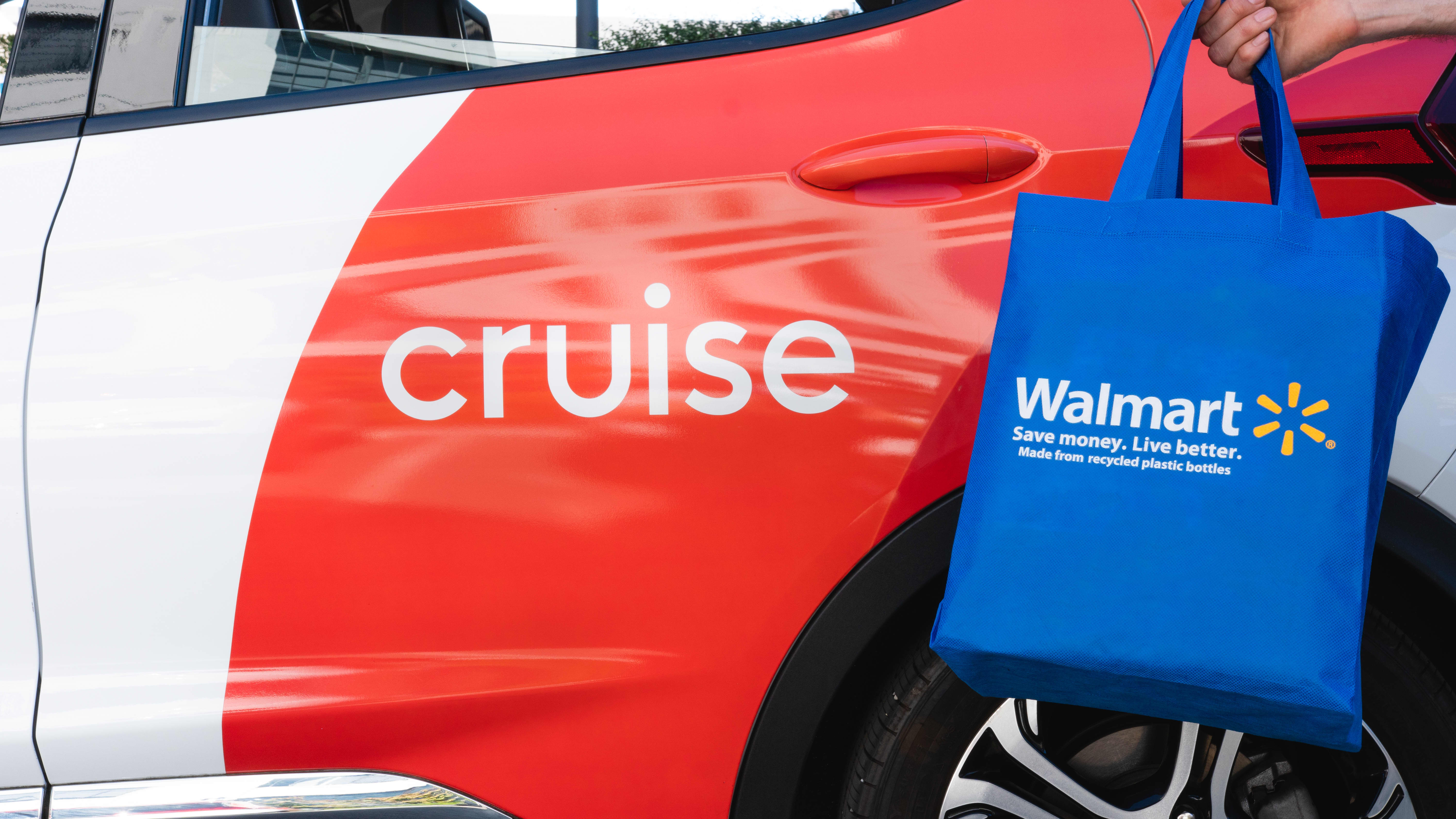Walmart to test deliveries by self-driving car with General Motors’ Cruise

Walmart and Cruise will begin testing deliveries by driverless car in 2021.
Walmart
Starting next year, some of Walmart‘s deliveries of groceries and other items will be dropped off at customers’ homes by a small fleet of electric-powered, driverless cars.
The big-box retailer said Tuesday that it will kick off a new pilot with Cruise, an autonomous, all-electric vehicle company that’s a majority-owned subsidiary of General Motors. It did not disclose terms of the deal.
Tom Ward, senior vice president of customer product for Walmart U.S., said customers who live near the pilot in Scottsdale, Arizona can place an order from their local store and have it delivered by one of Cruise’s cars. He said it could further two of the retailer’s goals: Getting customers what they need quickly and moving a step closer to the company’s target of zero emissions by 2040.
“Technology that has the potential to not only save customers time and money but also be helpful to the planet is technology we want to learn more about,” he said in a post on the company’s website.
The retail giant has experimented with different tech-enabled ways to smooth out inefficient or expensive aspects of its business, from simplifying the restocking of shelves to expediting same-day deliveries to customers. One area of focus is solutions for the last-mile — the term used to describe the final stretch of a package’s journey that drives much of its delivery costs.
Walmart has testing underway with six different autonomous vehicle companies, including Cruise, Ford and Alphabet-owned Waymo. It is also testing drone delivery with multiple operators, including one company that’s delivering Covid-19 testing kits to people’s homes.
Other retailers, including Kroger, are testing deliveries by driverless vehicle, too.
Not all of Walmart’s technology experiments have scaled up, however. The company recently ended a contract with a robotics company, Bossa Nova Robotics, after deciding humans could do similar work to the robots it used in some stores to scan shelves for inventory.
In late October, the retailer announced it would designate four stores as e-commerce laboratories where employees will test new digital tools. For example, they will test an app that uses augmented reality to scan multiple boxes in the back room rather than one at a time as they move them to the store floor.




